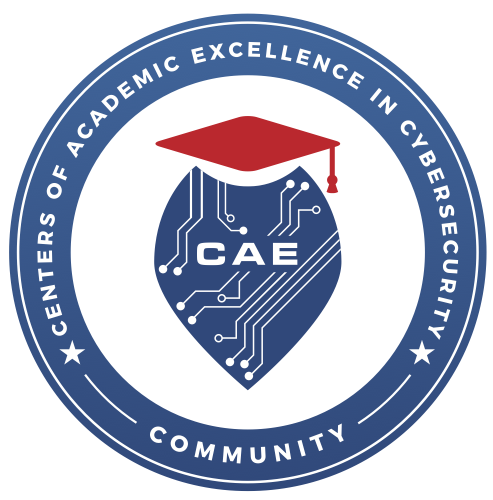Home | Advancing Technology Degrees | Network Security
University of Advancing Technology (UAT) is designated as a National Center of Academic Excellence in Cyber Defense (CAE-CD) by the National Security Agency (NSA).
Network security utilizes proactive techniques, including defense-in-depth and layered security, to mitigate or eliminate vulnerabilities in information systems and to protect against potential exploitation. This may include network and application penetration testing, software and hardware reverse engineering as well as developing exploits for identified vulnerabilities.
A network security specialist is a professional who focuses on ensuring information confidentiality, integrity and availability. Security professionals possess intimate knowledge of critical business components.
UAT's Network Security degree reflects the application of theory and is aligned with industry standards and guidelines. The program provides students with the opportunity to synthesize and apply the vital skills and knowledge necessary to succeed in the cyber security workforce.
Check out some of this semester’s Network Security courses and gear up for fresh challenges. Unlock new skills and power up your education.
As the front line of the 21st century information age will you be managing information appropriately while considering the threats you face? Information is managed by a wide range of elements that must be considered as part of the full equation. The laws and regulations that apply to the business, the importance placed on the information by business leadership, the expectations of the customer, and of course the desire for the most reasonable protections to the information in support of all objectives. This course focuses on how all these elements come together to create and manage the information governance of the organization.
Explore the world of Network Security Monitoring (NSM) and packet analysis. Network security monitoring takes a step past standard intrusion detection models and collects the full spectrum of data types (event, session, full content and statistical) needed to identify and validate intrusions on contemporary network infrastructures. This course will examine typical network security monitoring hardware, tools, design and deployment. Standard vulnerability packet analysis scenarios will provide an in-depth appreciation of monitoring corporate-level networking environments.
This course prepares students for a competition that specifically focuses on the operational aspect of managing and protecting an existing commercial network infrastructure. Not only do students get a chance to test their knowledge in an operational environment, they will also get a chance to network with industry professionals. Due to the changing nature of the challenges, this course can be taken twice and credits received both times toward the appropriate degree.
This course provides an overview of the commands, utilities and supporting architecture used in Linux operating systems. This course provides the student with skills such as system and application installation, shell scripting, regular expressions, system management, web services installation and maintenance.
This course will provide students with an understanding of the modern mobile computing technology landscape. The explosive growth in this area makes this essential knowledge for the IT engineer to have. Wireless fundamentals and history will be covered. Popular topics such as how to manage smartphones, tablets and other mobile consumer devices in a business environment and how service providers architect their wireless networks to accommodate mobile devices will be covered. Wireless technologies such as GSM, CDMA, 3G/4G, LTE, 802.11, Bluetooth and WiMAX will be introduced. Students will learn the various wireless and collaboration technologies influencing modern corporations and service providers. This course will also explore the types, uses and configuration of on-demand collaboration, solutions email systems, file sharing, web publishing, web portals, content management solutions, online meeting, instant messengers, web-based word processor, spreadsheet, presentation and data storage services. During this course, you will learn the business drivers, social drivers and technology being used to mobilize the collaborative workforce. The trend towards consumerization of IT will also be discussed. A study of these technologies will prepare students to make objective evaluations of the different wireless/mobile and collaboration technologies and their use cases. Students will be given hands-on exercises to reinforce the knowledge taught in class.
This course will prepare students for working in the highly virtualized IT environments of contemporary businesses. The skills required to administer a typical Virtual Infrastructure will be covered in this class. The skills learned in this class will prepare you for understanding the design, implementation and tools used in a virtual environment. The course will focus on planning, implementing, configuring, deploying and securing server and network virtualization server and desktop technologies for software-as-a-service (SaaS), cloud computing technologies, administering virtualized server infrastructure, resource and balancing management, virtual switching, routing and forwarding, logical storage partitions, virtual processors, network interfaces, virtual and remote management of virtualized operating systems in a vendor-neutral environment. Each student will complete a hands-on project to build a complete multi-server VMware environment using the tools explored in this class. Students will be taught the business drivers, pros and cons and use cases of virtualization technology.
Educating the next wave of innovators, our faculty leverage their experiences to mentor students to lead innovations and solve challenges in advancing technology.
UAT’s Synchronic Learning model provides an education framework that prepares superior graduates to become tomorrow’s innovators. This model embodies UAT’s methodologies, curricula and community dedicated to fostering an environment of innovation that promotes demonstrated mastery and job readiness.
How does UAT prepare superior graduates? Students are required to participate in projects that solve real problems. UAT requires students to innovate and create a working proof of concept that’s never been done before. Students complete internships, community projects and apprenticeship experiences to cultivate their ability to succeed in the workplace.

Network Security curriculum certified by the US National Security Agency's Information Assurance Courseware Evaluation program
